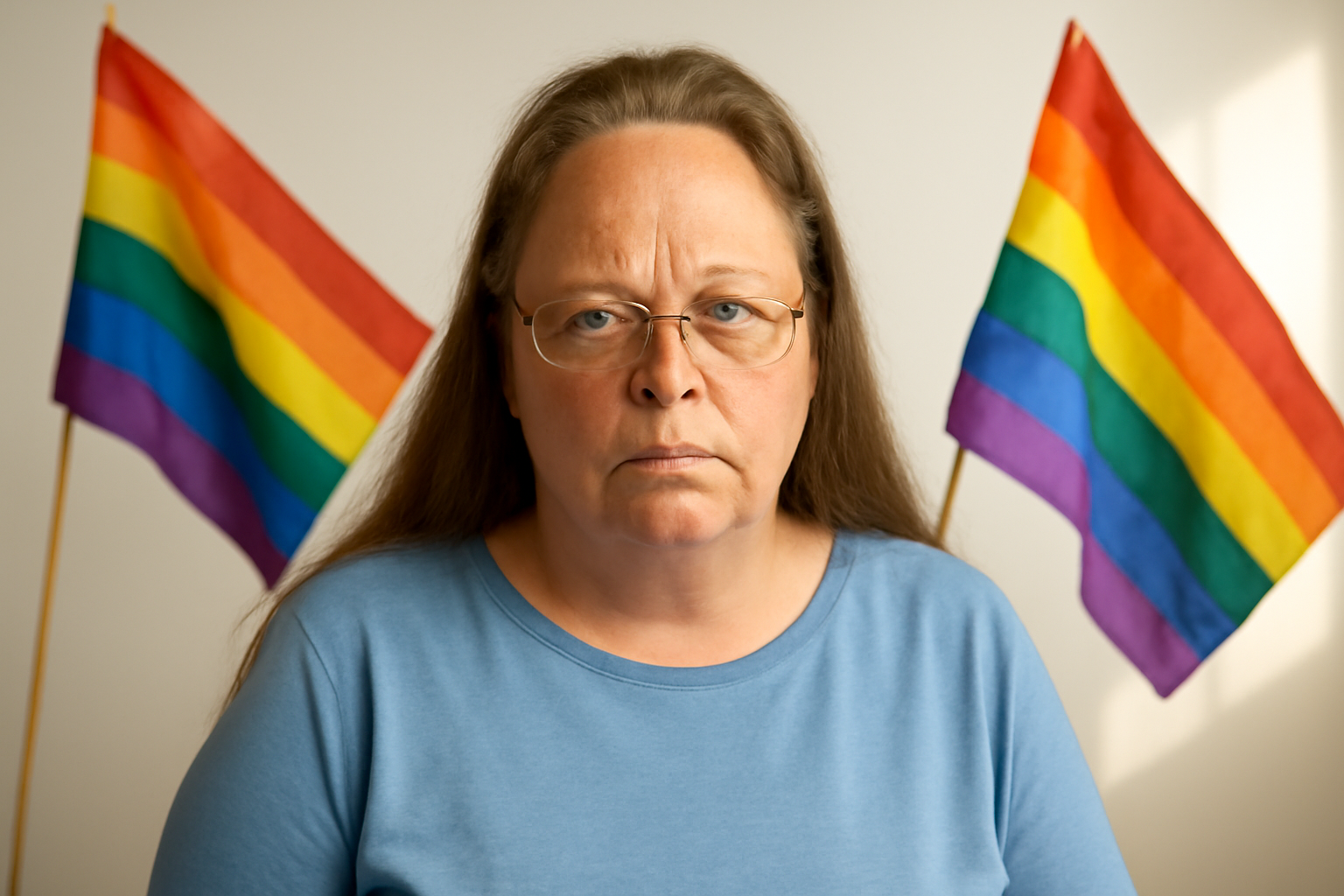
Kim Davis, the former Rowan County Clerk from Kentucky, is once again at the center of a legal controversy. Known for her refusal to issue marriage licenses to same-sex couples in 2015, Davis is facing ongoing legal challenges and potential financial repercussions related to her actions from years ago.
The Background of the Case
In 2015, following the landmark Supreme Court decision in Obergefell v. Hodges, which legalized same-sex marriage nationwide, Kim Davis refused to issue marriage licenses to same-sex couples, citing her religious beliefs. Her refusal led to national headlines, a brief stint in jail, and a series of legal battles. Davis' actions were seen as a violation of the constitutional rights of same-sex couples, sparking a debate over religious freedom and civil rights.
Among those affected were David Ermold and David Moore, a same-sex couple who were denied a marriage license by Davis. The couple subsequently filed a lawsuit against her, seeking damages for the emotional and financial distress caused by her refusal.
The Current Legal Dispute
Fast forward to today, Kim Davis is back in court as the legal proceedings continue. The case now revolves around the financial compensation that Davis may owe to Ermold and Moore. A federal judge ruled that Davis violated their constitutional rights, and now the court must decide on the damages she should pay.
The legal process has been complex and drawn out, with Davis arguing that her actions were protected under her religious freedoms. However, the courts have consistently found that her duties as a public official required her to act in accordance with the law, regardless of her personal beliefs.
Public Reaction and Ongoing Debate
Kim Davis' case has reignited discussions about the balance between religious freedom and equal rights under the law. Supporters of Davis argue that she was exercising her right to religious freedom, while opponents insist that public officials have a duty to uphold the law and serve all constituents equally.
The case has also brought attention to the broader implications for LGBTQ+ rights. Advocates fear that allowing religious beliefs to justify discrimination could undermine the progress made in securing equality for LGBTQ+ individuals.
Impact on the LGBTQ+ Community
The ongoing legal dispute serves as a reminder of the challenges that LGBTQ+ individuals still face in securing their rights. While same-sex marriage is legal, cases like Davis' illustrate that the fight for full equality continues. Discrimination under the guise of religious freedom remains a pressing issue, highlighting the need for continued advocacy and legal protections for the LGBTQ+ community.
Davis' case is closely watched by both sides of the debate. For LGBTQ+ advocates, it is a critical moment to reaffirm that personal beliefs should not interfere with public duties or infringe upon the rights of others. For those concerned with religious liberty, it raises questions about the extent to which individuals can express their beliefs within the public sphere.
Looking Ahead
As the court proceedings unfold, the outcome of the case will likely have significant implications for similar situations across the country. It may set a precedent for how cases involving religious objections to same-sex marriage and public duty are handled in the future.
For now, the focus remains on the legal proceedings, with the LGBTQ+ community and their allies hoping for a decision that reinforces the importance of equal rights for all individuals, regardless of sexual orientation or religious beliefs.
The conclusion of this case will be a pivotal moment in the ongoing struggle for LGBTQ+ rights, serving as a benchmark for future cases involving the intersection of religious freedom and civil rights.
Related Posts
Triumphant Trans Woman Wins Legal Battle and Inspires Others to Stand Up for Their Rights
Breaking new ground: a landmark victory in transgender rights After battling in courtrooms and enduring endless challenges, Diana Portillo, a transgender woman, has secured a monumental victory in her decade-long fight against workplace discrimination. The result? Nearly $1 million awarded in a historic settlement. But this isn't just a win on paper—it represents a powerful precedent in combati [...]
Pride Month in Latin America: Protests and Demands for Equality
**Celebrating Pride and advocating LGBTQ+ rights in Latin America** Pride Month in Latin America was a lively mix where celebration met activism. Communities united, not just throwing a party but making a stand—demanding equality and pushing governments toward better protection and rights recognition. Throughout Latin America, pride events erupted in marches and cultural displays, each with a c [...]
Transgender Erasure Actions Implemented by National Park Service
```html Trump administration's impact on national park service and transgender recognition The Trump administration made notable moves in undermining transgender representation, which included directing agencies like National Park Service not include "T" and "Q" when they refered “LGBTQ” in any official communication. This move seems part a broader plan by this administration aimed at reducin [...]